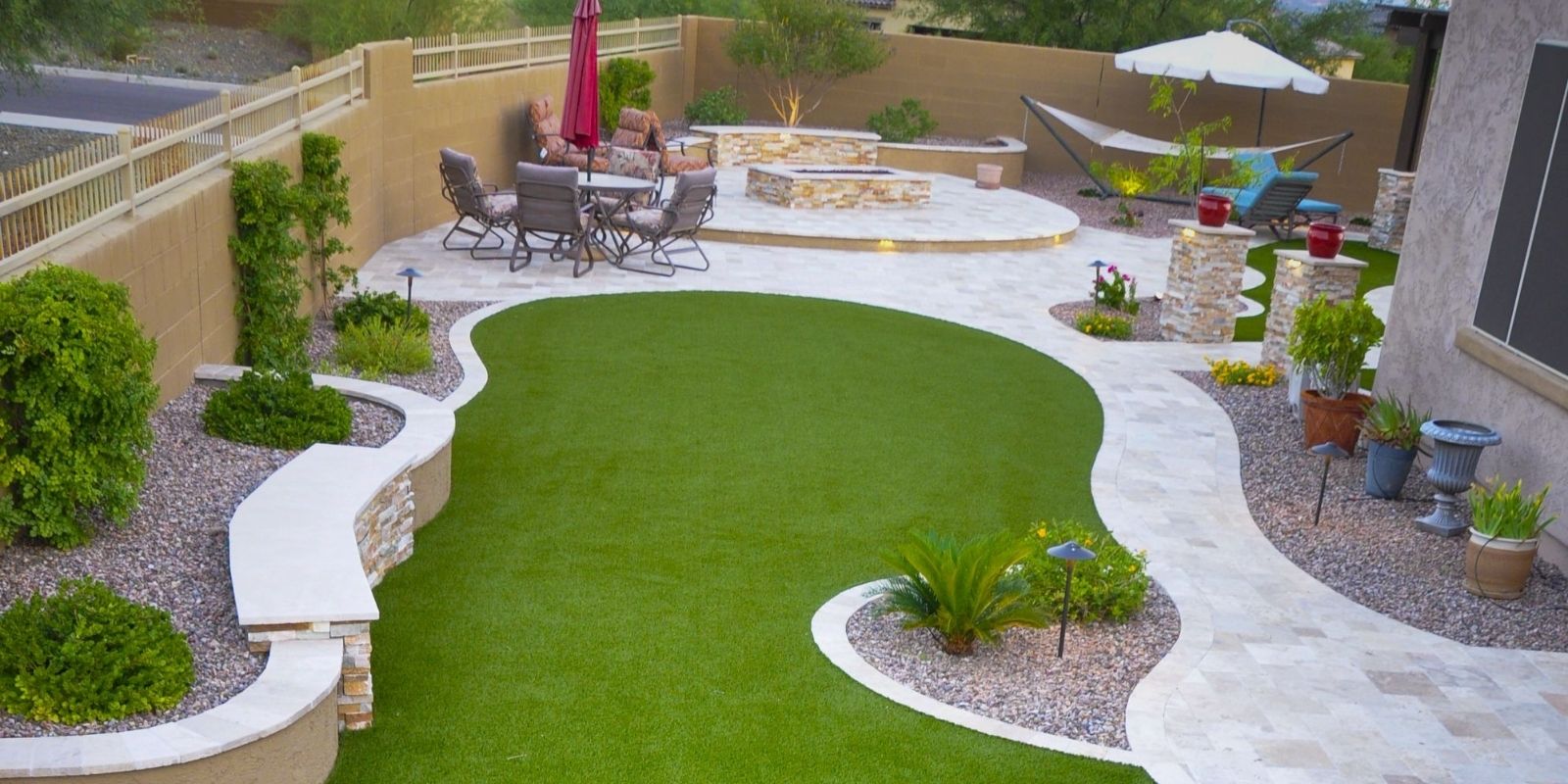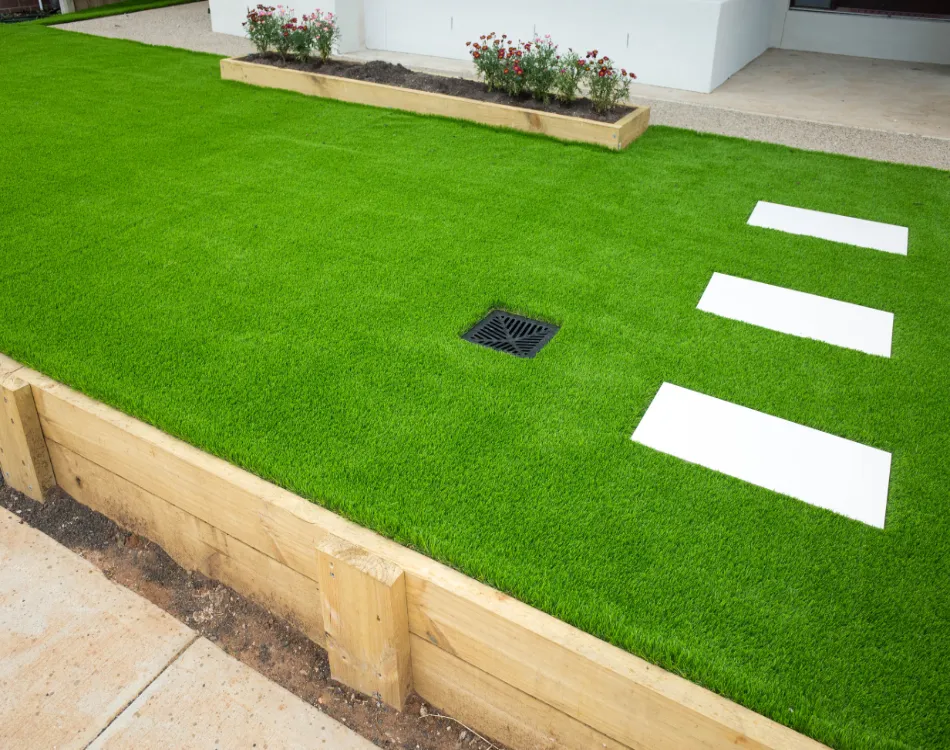Highly-Ranked Phoenix Turf Companies Focusing on Synthetic Grass Solutions
Explore the Environmental Benefits of Opting for Synthetic Grass Solutions
The fostering of man-made lawn remedies offers a compelling possibility to address pressing ecological challenges. By substantially reducing water usage and lessening the application of damaging chemicals, these choices not just advertise lasting landscape design but likewise safeguard neighborhood environments.
Water Conservation Advantages
One of the most considerable benefits of man-made grass is its capacity to conserve water. In contrast, artificial lawn does not require watering, dramatically minimizing the general demand for water sources.
By eliminating the need for routine watering, artificial lawn adds to sustainable landscape techniques and aids minimize the environmental influence of excessive water consumption. Furthermore, the preservation of water expands to the reduction of runoff, which can result in dirt disintegration and river air pollution.
In addition, the installment of synthetic grass allows property owners and districts to allot water sources extra efficiently, concentrating on necessary usages such as alcohol consumption water and farming. The shift towards synthetic grass not just promotes responsible water use yet also aligns with broader ecological goals targeted at preserving natural sources.
As communities increasingly focus on sustainability, the water preservation benefits of synthetic grass provide a compelling instance for its adoption in business and property landscape design jobs.
Minimized Chemical Usage
The change to synthetic grass significantly lowers the dependence on chemical therapies generally utilized in all-natural grass upkeep. Standard turf monitoring commonly includes the application of plant foods, chemicals, and herbicides to advertise development and control pests. These chemicals can position risks to human health, regional wild animals, and the atmosphere, adding to dirt and water contamination.
On the other hand, man-made turf removes the need for these harmful compounds. When mounted, it needs very little upkeep, largely containing routine cleaning and occasional infill replenishment. This reduction in chemical usage not only benefits the immediate atmosphere but also adds to broader environmental security. By minimizing the launch of artificial compounds into the ecosystem, man-made grass advertises healthier soil and water supply.
Furthermore, the lack of chemical drainage associated with synthetic grass installments aids shield neighborhood rivers from pollution, supporting aquatic life and maintaining biodiversity. Phoenix turf companies. As areas significantly focus on lasting methods, choosing fabricated lawn provides a feasible remedy that straightens with ecological conservation goals. With this shift, homeowner can delight in lush environment-friendly rooms without jeopardizing eco-friendly health and wellness, paving the way for a much more lasting future
Lower Carbon Footprint

In addition, the setup of synthetic grass can cause substantial water preservation. Natural grass require significant amounts of water for irrigation, which not just includes in the carbon impact connected with water removal and therapy but likewise pressures neighborhood water resources. On the other hand, synthetic grass requires very little upkeep, requiring no watering, consequently significantly minimizing water usage and its associated energy expenses.
Furthermore, the longevity of man-made grass adds to its lower carbon impact. With a life expectancy of as much as 15 years or more, the requirement for constant substitutes is lessened, causing much less waste and lower power intake in production and taking care of traditional lawn options. Generally, man-made grass offers a lasting alternative for ecologically mindful landscape design.
Environment Conservation
Habitat preservation is a crucial consideration in the argument over landscaping selections, especially when comparing synthetic turf to all-natural yard. Natural grass yards frequently require substantial upkeep, including making use of pesticides, plant foods, and herbicides, which can detrimentally affect local ecological communities. These chemicals can leach right into the soil and waterways, harming indigenous flora and animals and interfering with regional environments.
In comparison, synthetic grass offers a chance to reduce the eco-friendly footprint of landscape design. By selecting artificial turf, property owners can reduce the disruption of all-natural environments connected with traditional grass care techniques. Synthetic grass gets rid of the need for dangerous chemicals, thus securing nearby wild animals and maintaining the stability of bordering communities. The installation of synthetic grass can lead to the conversion of previous yard locations into even more biodiverse landscapes, such as pollinator gardens or indigenous plant areas, which can sustain regional wildlife.
Inevitably, the the original source change to synthetic grass not just saves water and minimizes upkeep initiatives yet additionally cultivates a much more harmonious relationship in between human tasks and the all-natural setting, advertising habitat preservation at the same time.
Long-Term Sustainability
Long-term sustainability is a critical element in evaluating the benefits of synthetic lawn over typical turf yards. One of the most substantial advantages of artificial grass is its longevity; it can last up to 15-20 years with marginal upkeep, whereas natural lawn needs constant reseeding and substitute. This long life lowers the need for continuous sources, such as water, plant foods, and pesticides, which are vital for keeping a healthy grass yard.
In addition, synthetic grass adds to a reduction in carbon emissions connected with lawn care equipment. Standard yards commonly require gas-powered mowers, trimmers, and blowers, every one of which contribute to air contamination. Turf installation phoenix az. In contrast, fabricated turf gets rid of the demand for such tools, advertising a cleaner setting
Moreover, the manufacturing of synthetic grass increasingly uses recycled materials, boosting its sustainability account. As suppliers take on green practices, the ecological footprint of synthetic grass remains to diminish.

Conclusion
The adoption of synthetic grass solutions offers significant environmental benefits, including substantial water conservation, decreased reliance on unsafe chemicals, and a lower carbon impact. Fabricated lawn aids in preserving all-natural habitats by minimizing land disruption and advertising long-term sustainability through the usage of long lasting materials. Collectively, these aspects emphasize the capacity of synthetic turf to add positively to ecological wellness and provide a feasible alternative to typical landscape design techniques in a significantly resource-conscious world.
In comparison, synthetic lawn does not require watering, substantially reducing the general demand for water sources. By reducing the release of synthetic substances into the ecological community, man-made turf advertises much healthier soil and water systems.
In addition, the setup of artificial grass can result in significant water conservation. In contrast, artificial grass needs marginal maintenance, calling for no watering, thereby significantly decreasing water use and its associated power prices.
